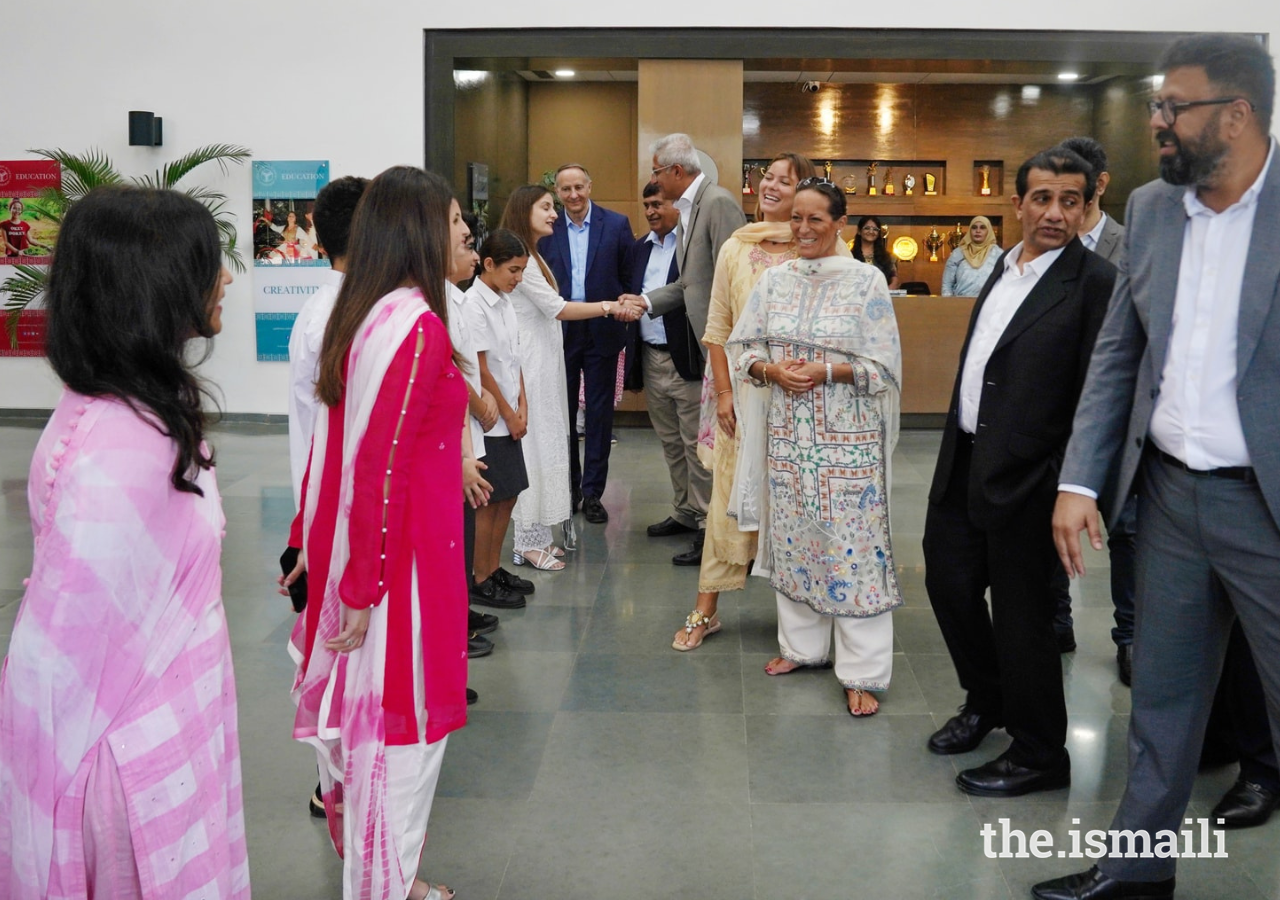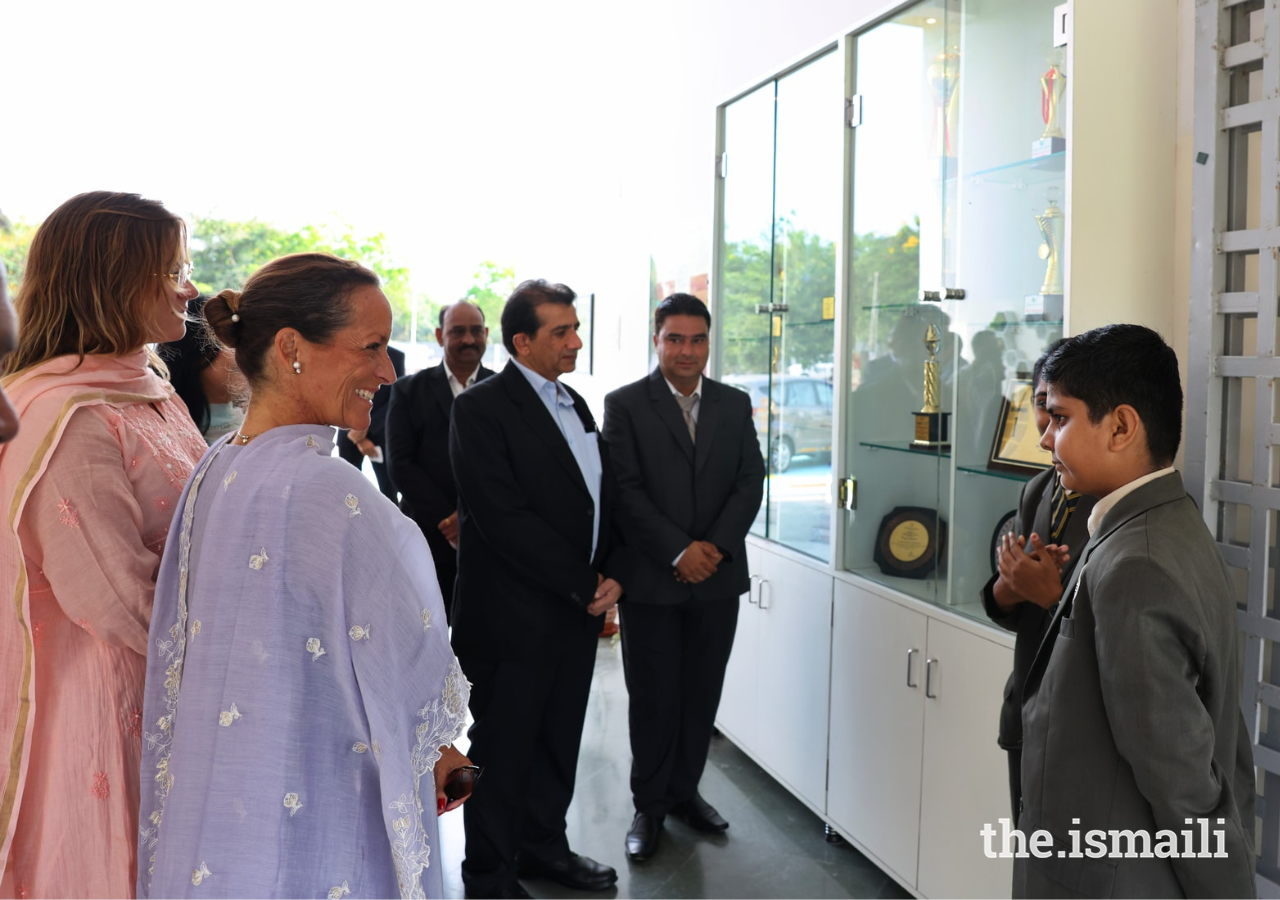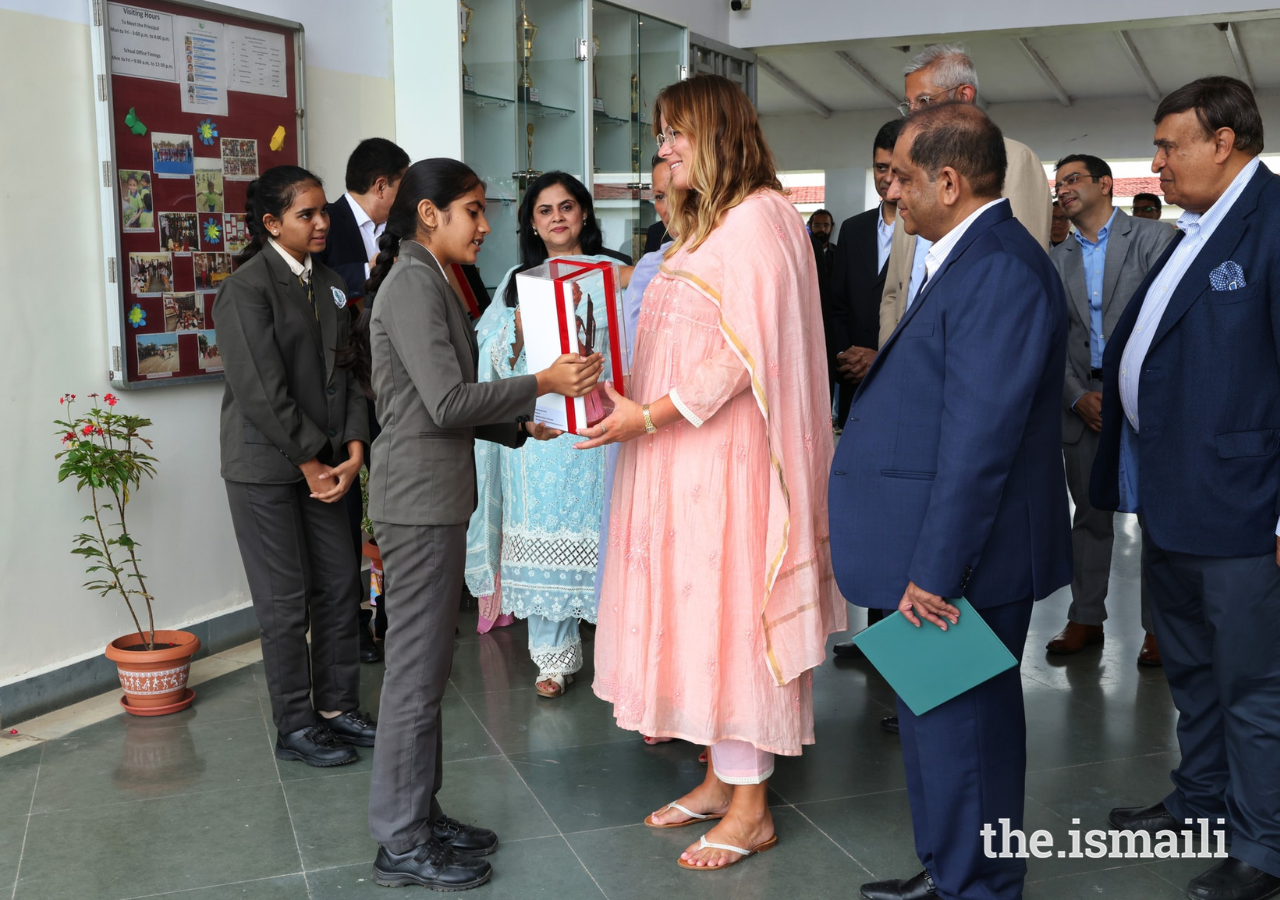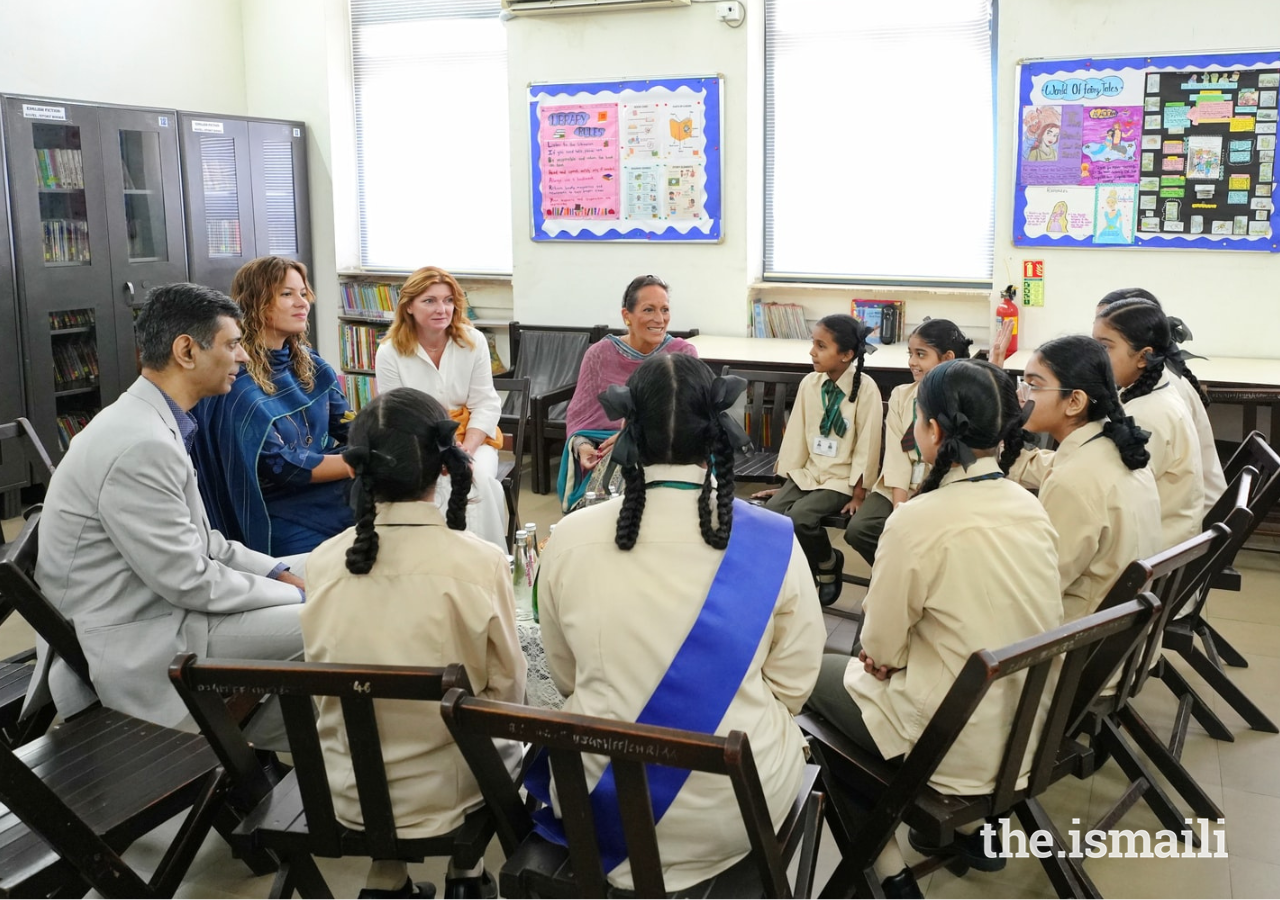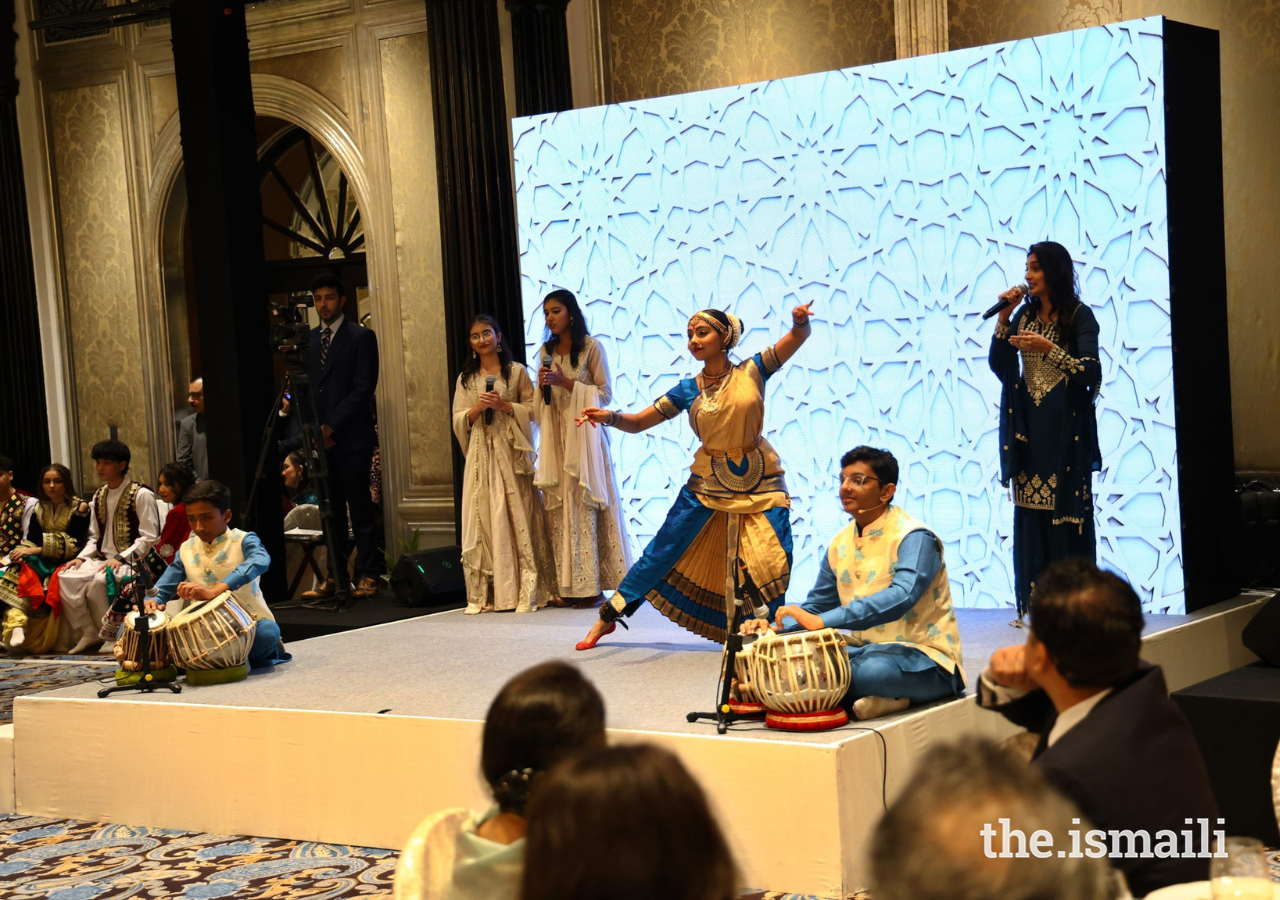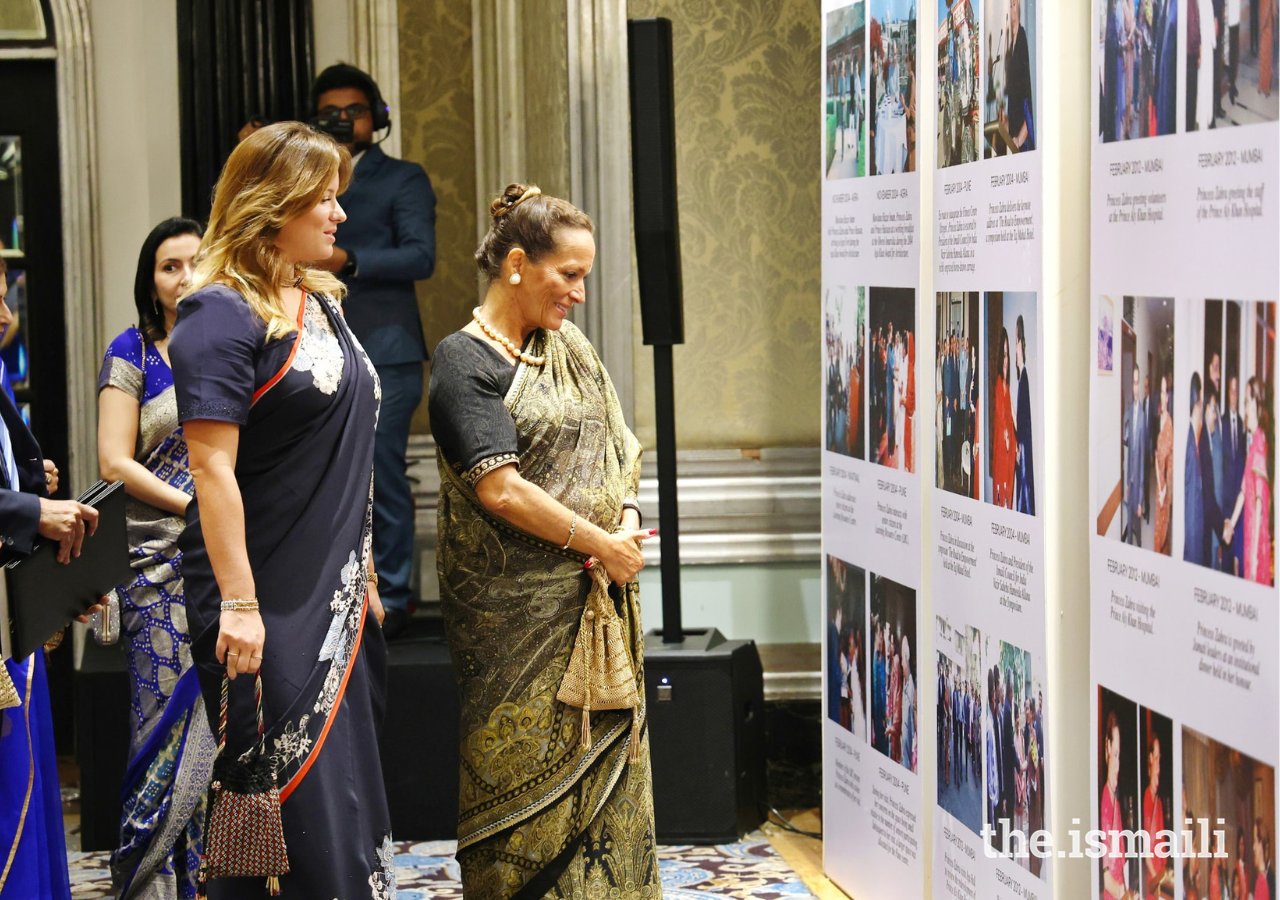In Hyderabad, Telangana, Princess Zahra visited the two campuses of the Diamond Jubilee High School, the Aga Khan Hostel in Kompally, and the Aga Khan Academy. They also spent time at the Garden Society in Kompally, which provides housing to hundreds of families, and includes a Jamatkhana, a Learning Resource Centre (LRC) for elder members of the Jamat, a Medical Centre, and a Learning Centre that hosts after-school programmes run by the Aga Khan Education Board.
While in Gujarat, Princess Zahra visited a pre-school in Keshod, the Malia Hatina Hostel and the Girnar School, and the Aga Khan School in Chitravad. There, she also inaugurated the 16th LRC in the country, which offers a recreational and learning space for senior citizens of the Jamat, thus helping to enhance their quality of life.
The breadth and diversity of the educational institutions they visited underscores the Imamat’s commitment to ensuring widespread access to high-quality education, in order to help nurture and develop future leaders of India.
AKDN has a long and rich history in India, with strong educational institutions dating back to 1905, when the first Aga Khan school was founded in Mundra. In the 1940s, during the Diamond Jubilee of Mawlana Sultan Mahomed Shah, several more schools were established across South Asia.
The network of schools has continued to grow under the guidance of Mawlana Hazar Imam. Today, in India, AKDN operates eight state and national curriculum schools, 19 pre-schools, one hostel and one Academy, which together serve more than 8,000 students from different backgrounds.
In Mumbai, visits were arranged to the Diamond Jubilee High School for Girls and the coeducational Diamond Jubilee High School. While in Mumbai, Princess Zahra also visited the Aga Hall Estate to review progress on construction. Aga Hall is a revitalisation project rooted in legacy. Originally established by Mawlana Hasan Ali Shah in the 1860s, the site was also a home to Mawlana Ali Shah and Mawlana Sultan Mahomed Shah. Over the years, it has witnessed Mumbai’s evolution into a thriving international hub, while symbolising the city's historic roots.
Alongside a new, enlarged Jamatkhana, a new international-standard school, and a new hospital, the Aga Hall Estate’s two residential towers will offer a convenient and holistic lifestyle, with lush gardens that will cover more than half of the site’s total area, creating a green oasis in the densely urbanised area. The aim is to enhance the quality of life for current and prospective residents and provide a safe, community-oriented living experience.
At an institutional dinner in Mumbai, President Asif Porbanderwala of the Ismaili Council for India welcomed Princess Zahra and her daughter Sara, and conveyed the Jamat’s joy and gratitude for their visit to the country. He also thanked Princess Zahra for her tireless efforts and commitment for more than 30 years:
“You have been a pillar in supporting the vision of our Imam, and more importantly, leading by example,” he said.
The Ismaili Council screened a short film and presented a photo gallery recounting Princess Zahra’s previous visits to India to honour her contributions and pay tribute to her many years of work.
Princess Zahra expressed her thanks to the many volunteers who made the visit possible, and commended the artists who performed at the dinner. “It’s my honour and my pleasure to be here with all of you,” she said. Princess Zahra also spoke about the visit, the progress of AKDN in India, and Mawlana Hazar Imam’s vision.
“I think we all follow the same vision,” she added. “We are all inspired by that vision, we’re all trying to live up to that vision and contribute to it as best we can. And it’s not a question of choice. It’s a question of vocation, and calling, and duty.”



